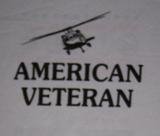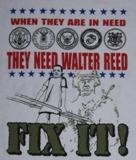To ALL of you I saw in DC proclaiming that you "support the troops, but are against the war"...
This is what we were trying to tell you about that stance. This is why we are against you. This is why we call you traitors to your country.
This is the difference it makes...
Democrats Back Down, Troops Morale Boosted
Posted: 22 Jun 2007 12:31 PM CDT
(Excerpt By Amir Taheri, New York Post)
The morale of both U.S. and Iraqi troops has been boosted by the decision by the Democrat Party to tone down its campaign against U.S. military commitment to Iraq. There is a feeling in Baghdad that the possibility of America opting for a cut-and-run strategy has decreased. That, in turn, has encouraged the Iraqi military to stop hedging its bets and enter the battle with greater resolve. SIX months ago, the U.S.- led Coalition force in Iraq appeared to be largely in self-defense mode, allowing terrorists and insurgents much latitude in parts of Baghdad and the troubled provinces of Anbar and Diyala. At the same time, the government of Prime Minister Nouri al-Maliki appeared to be engaged in abroad political offensive.
Today we have what looks like a reversal of the two situations - with dynamism in the military field but lethargy in the political. The Coalition has increased its effective force by almost 20,000 men and, under its new commander, Gen. David Petraeus, has moved into offensive gear:
The province of Anbar, Iraq’s wild west since ancient times, has been partly stabilized with the help of Sunni Arab tribes who have taken up arms against al Qaeda and its Ba’athist allies.
In those of Baghdad neighborhoods where terrorists held sway, Iraqi security forces, backed by U.S.troops, are establishing an effective presence, allowing a slow return to normal. Reassured by the troop presence, the inhabitants of at least one neighborhood, Amiriyah, have chased away a terror outfit entrenched there since 2003.
The Iraqi army, backed by U.S. and British troops, has moved onto the offensive in the Shiite south as well. This week a major operation smashed an extensive smuggling ring in Maysan province, shutting one route through which Iranian-made weapons are supplied to terrorists.
Iraqi forces have designed and led a number of operations aimed at clearing the environs of Baghdad of insurgents and flushing out terrorist cells in Baquba’s orange groves. More than 5,000 Iraqi troops and some 2,000 paramilitaries are taking part in“combing out” operations in Diyala, the largest turnout of Iraqi forces at any one time since 1992.
A new corps of Iraqi officers is taking shape, as hundreds of NCOs and officers up to the rank of two-star general from the disbanded army are re-inserted after extensive probing procedures.
Recruitment in the new Iraqi army and police is up by almost 10 percent; the number of battle-tested battalions is up from 22 to almost 50.
Iraq forces, backed by Coalition troops, are finally in control of the 1,483-kilometer land and waterborders with Iran, which had been left virtually unsupervised since 2003. Only last month, the Iraqis and the Coalition established control over Al Qaim, the town that controls the border with Syria.
Reports indicate that in the last 10 weeks the various armed enemies of new Iraq have suffered their heaviest losses since the start of the conflict four years ago.
The insurgents are suffering a significant number of defections while an unknown number are believed to have left Iraq, presumably to pursue “jihad” in other Muslim countries.
Coalition and Iraqi forces have seized weapons from the insurgents on an unprecedented scale. More than 20 bomb-making factories have also been discovered and neutralized in and around Baghdad.
The morale of both U.S. and Iraqi troops has been boosted by the decision by the Democrat Party to tone down its campaign against U.S. military commitment to Iraq. There is a feeling in Baghdad that the possibility of America opting for a cut-and-run strategy has decreased. That, in turn, has encouraged the Iraqi military to stop hedging its bets and enter the battle with greater resolve.
BUT the political situation has deteriorated. The Maliki government may well be on life support. At least eight Cabinet posts are effectively vacant while two key partners in the pro-government bloc, the Fadila (Virtue) Party and Muqtada al-Sadr’s group, have walked out. Another key group within the coalition, led by former Prime Minister Iyad Allawi, has effectively switched to the opposition and is emerging as Maliki’s most outspoken critic.
Thus, the Maliki government now lacks an effective majority in the National Assembly (parliament) and theoretically could be brought down with a no-confidence motion any day.
Worse still, the Shiite alliance, which provided the core element of political stability, has ceased to exist. Even Grand Ayatollah Ali Sistani, the primusinter pares of Shiite clerics, no longer enjoys the unifying clout he did a year or so ago.
It may be premature to speak of political paralysis. But the fact is that the Maliki government has been unable to pass key items of its program. Crucial bills on the oil industry and the distribution of oil revenues remain bogged down in parliamentary committees. Also unresolved are such explosive problems as the status of Kirkuk (a city disputed between the Kurds and Sunni Arabs) and the creation of new federal entities.
The government’s weakness also prevents it from setting a date and rules for the municipal elections needed to create local government units to end defacto control by militias in many parts of the country.
All this has encouraged talk of a military coup. Some political groups clearly favor a coup, in the mistaken belief that Iraqis can’t order their affairs without some form of dictatorship. The coup option is also encouraged by some Arab states and by Turkey, which is concerned about the revival of Kurdish terrorism from Iraqi territory.
What Iraq needs, however, is not another moustache. It needs to revitalize its political life by forming a new government, with new partners capable of garnering greater support inside and outside parliament. If that proves impossible, the way out is through early general elections. Though set for January 2008, the next vote could be brought forward - although the Kurds, hoping to win Kirkuk with the help of a weak Shiite government, oppose that option.
The U.S.-led Coalition is making significant military progress - but it could be undone if Iraq doesn’t get its politics right. It may be time for America and its allies to talk frankly with the Iraqi parties on how to use the military success as a basis for ending the political deadlock.
Can you quit singing long enough to hear how your efforts effect the morale of BOTH sides?
Keep an eye on this!
Does the Walter Reed hospital story bother you as bad as it does me and others?
In conjuction with The Brick Pizzeria, we are developing a shirt that we feel makes the point. Yes, we will make a buck or two off of them, but we want the a percentage of the proceeds to go to a decent organization or group.
At this time, we are leaning towards the Imus ranch for children.
Im all for it, but I also think Id like to split that and share with an organization that is helping our injured veterans. After all, thats the issue behind the shirts...
What do you folks think?
Tell me at harleygeek@thegerb.org
Ideas from the outer perimeter
Iscoot2 came back with the first input!
Check out his ideas for our charity selection under the "Special Links" section!

Subscribe to:
Post Comments (Atom)





No comments:
Post a Comment